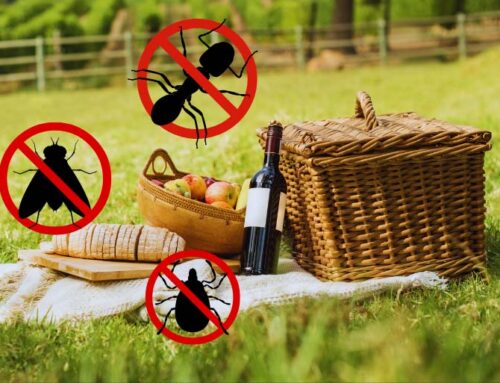Welcome to the sunny days of summer in Waterloo, IA—time for beach outings and barbecues, but also the season when summer bugs like mosquitoes, ticks, and ants are most active. Implementing effective summer pest control practices is essential to fend off these common nuisances
In this guide, you’ll find efficient and timely methods to control these pests and prevent them from ruining your summer fun. We’ll provide you with both preventive measures and immediate solutions to maintain a pest-free environment, allowing you to enjoy the warm weather to its fullest.
Common Summer Pests and Their Risks
While you enjoy the great outdoors, it’s crucial to be aware of the risks posed by common summer bugs. This section delves deeper into the challenges presented by insects such as mosquitoes, ticks, and ants, which are particularly troublesome during warmer months.
Here, we outline specific strategies to mitigate these risks and enhance your summer safety.
STINGING INSECTS (WASPS, BEES, ETC.)
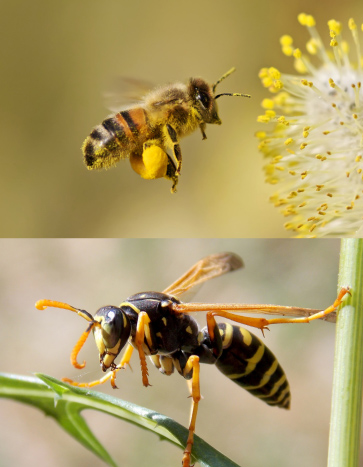
Bees and wasps are crucial for pollination and maintaining ecological balance but may pose risks when their nests are built close to areas frequented by people. Should you encounter a nest on your premises, utmost caution is advised. It is best not to interact with the nest during their active hours in the daytime. If the nest is not in a place of frequent activity, consider letting it be to support their role in pollination.
However, should the nest represent a serious risk, especially to individuals allergic to stings, securing the services of qualified pest control professionals to safely remove or relocate the nest is imperative. To minimize the attraction of these insects to your space, ensure that no food scraps or sugary drinks are left out in open areas.
FLIES
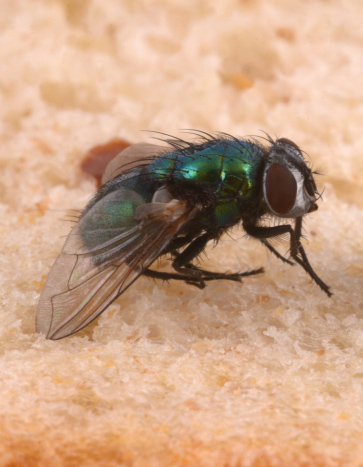
Despite their size, flies are a major health hazard, capable of spreading various diseases. Effective fly management hinges on maintaining cleanliness. Consistently dispose of trash and ensure that containers are securely sealed. Install protective screens on windows and doors to block their access.
You can also make a simple fly trap by combining sugar water and dish soap in a jar, covered with plastic wrap that has several small holes—this setup will attract and capture flies. Planting herbs like basil and mint around entry points can also be beneficial, as their scent naturally repels flies, helping to keep your indoor areas free of these pests.
TERMITES
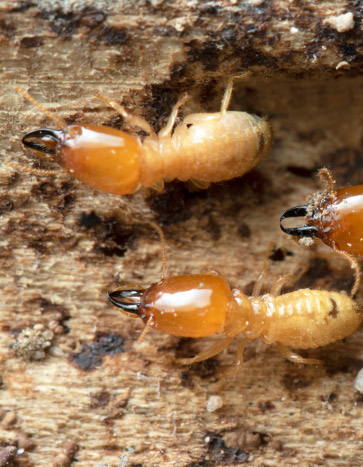
Quiet yet destructive, termites often go unnoticed until the damage becomes extensive. It’s vital to keep an eye out for signs that signal their presence. Do your wooden beams sound empty when tapped? Are there small mud trails on the walls, or have you noticed swarmers—termites with wings looking to start new colonies? These indicators suggest a potential termite problem.
Defend your home by clearing away wood piles and debris from your perimeter and ensuring areas around the foundation are moisture-free since moisture attracts termites. If you observe any of these signs, it’s imperative to immediately seek a certified pest control professional to evaluate and remedy the situation, averting expensive damage and future issues.
ANTS
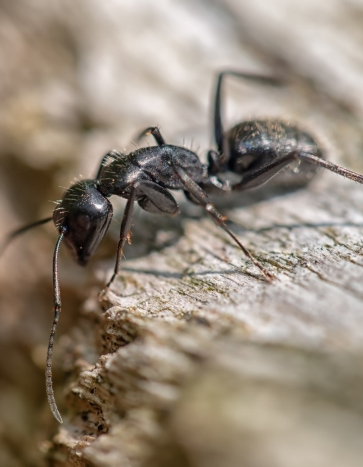
Quiet yet destructive, termites often go unnoticed until the damage becomes extensive. It’s vital to keep an eye out for signs that signal their presence. Do your wooden beams sound empty when tapped? Are there small mud trails on the walls, or have you noticed swarmers—termites with wings looking to start new colonies? These indicators suggest a potential termite problem.
Defend your home by clearing away wood piles and debris from your perimeter and ensuring areas around the foundation are moisture-free since moisture attracts termites. If you observe any of these signs, it’s imperative to immediately seek a certified pest control professional to evaluate and remedy the situation, averting expensive damage and future issues.
FLEAS AND TICKS
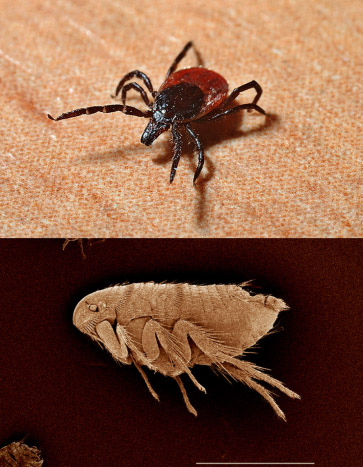
Fleas and ticks pose a threat not just to pets but to anyone who frequents green outdoor areas. Maintaining a well-groomed yard by mowing the lawn and clearing away brush can significantly limit their living spaces.
Ensure your pets are protected with vet-recommended flea and tick preventatives, and make it a habit to inspect them after they’ve been outdoors. For more comprehensive protection, apply pet-safe insecticides to your yard and use physical barriers like gravel or wood chip borders to keep ticks away from leisure zones.
MOSQUITOES
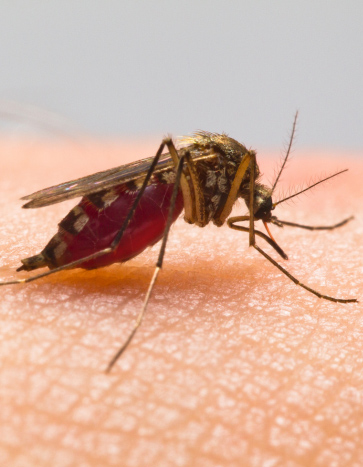
Mosquitoes might be out of sight, but they shouldn’t be out of mind—they’re not only irritating with their itchy bites but also dangerous, as carriers of diseases like West Nile Virus and Zika Virus. You can significantly cut down on their numbers by emptying containers that hold water, from flower pot trays to old tires, which are prime breeding grounds.
Make your home a fortress against these pests by installing tight mesh screens on all windows and doors. When you’re outside, wearing light-colored clothing can help keep mosquitoes at bay, along with using EPA-approved skin-safe insect repellents. Adding fans to your patio or deck areas is another effective strategy; the constant air movement confuses mosquitoes and hampers their ability to land.
Preventive Measures to Protect Your Home
As the warmer months roll in, implementing effective summer pest control is crucial to prepare your home against unwelcome pests, ensuring your summer is enjoyable, both indoors and out. We’ve compiled a blend of tried-and-true and cutting-edge strategies to keep your living space comfortable and free from pests.
Explore easy-to-implement, effective methods below to keep your living space comfortable and free from pests. Let’s ensure your summer is enjoyable, both indoors and out!
Optimizing Your Home’s Defense Against Pests:
Innovative Natural Deterrents:
Chemical Strategies with Caution:
Preventive Tips for Uncommon Pests:
Integrating these savvy and sometimes overlooked strategies not only helps keep your home pest-free but also ensures it’s done safely and sustainably. Adopting these approaches means your home remains a haven, free from the intrusion of summer pests, while balancing innovation with environmental care.
Managing Pests in Your Yard
As we delve deeper into crafting a pest-resistant environment, let’s turn our attention to the yard—your primary barrier against seasonal pests. Proper yard maintenance is crucial not only for aesthetic appeal but also for significantly reducing the likelihood of pest problems.
Why Effective Landscaping Matters:
A well-kept yard is your first defense against pests, helping prevent them from ever becoming an indoor issue. Here are strategies to keep your outdoor areas as uninviting to pests as your interior spaces:
Tailored Tips for a Pest-Free Yard:
Adopting these specific measures will not only beautify your yard but also fortify it against pests. Effective pest management is essential for a pleasant and healthy outdoor environment all year round. Maintain these strategies to keep your yard a serene retreat full of natural beauty.
Pet Safety During Summer
As we take steps to protect our homes and yards from pests, it’s crucial to ensure our pets are also safe during the warm summer months. Here are effective strategies to shield your beloved animals from fleas, ticks, and other pests.
Key Tips for Protecting Your Pets:
Implementing these straightforward measures can significantly enhance your pets’ quality of life in the summer. Just as we enjoy the sunny days, our pets deserve to experience the joy of summer without the nuisance of pests. With your proactive care, your pets can safely enjoy every beautiful day alongside you.
When to Call a Professional
Managing pest issues can often be a DIY task, but certain situations require the specialized skills of a professional pest control service. Knowing when to escalate your pest control measures to a professional level can significantly cut down on your time spent battling infestations and reduce the stress associated with worsening pest problems.
Key Signs You Need Professional Pest Control:
What to Expect from Pest Control Services:
Grasping this process underscores the value of professional pest control in effectively tackling pest challenges. With specialized knowledge and meticulous techniques, professionals like us at Bobcat Wildlife & Pest Management ensure that your living space remains both secure and comfortable.
DIY vs. Professional Pest Control
Selecting an effective pest control strategy is essential for keeping your home serene and free of pests throughout the summer. This guide delves into the advantages and challenges associated with both DIY efforts and professional services, assisting you in choosing the approach that best fits your lifestyle and effectively addresses your pest control concerns.
DIY Pest Control:
Pros:
Cons:
Professional Pest Control:
Pros:
Cons:
For minor pest problems, taking the DIY approach might be enough, offering a speedy and cost-effective solution. Yet, when dealing with more serious or dangerous infestations, enlisting professional services ensures a dependable, stress-free method for thorough pest eradication.
In evaluating your circumstances, weigh the intensity of the pest problem, your capacity to handle it independently, and whether the sustained advantages of professional help justify the upfront cost in saving both time and effort.
Take Action to Protect Your Home and Health
Pest control is more than just a routine task—it’s a crucial step in safeguarding your well-being and the structure of your home, particularly during the summer when pests are most active. Prompt action is essential, regardless of whether you choose DIY strategies or seek professional pest control services.
Facing ongoing or serious pest challenges in Waterloo, IA, or the surrounding areas? Do not let these issues escalate. Contact Bobcat Wildlife & Pest Control. Our experienced team is prepared to deliver quick, efficient, and safe pest control treatments customized for your particular circumstances. We’re dedicated to helping your home remain a peaceful haven, undisturbed by summer pests.
Act now to protect your living space in Waterloo, IA! Contact us today and start on the path to a peaceful and secure home environment for you and your family.

About the Author
Blake Marshall, Owner/Operator of Bobcat Wildlife and Pest Control, Waterloo. A skilled tradesman turned pest expert, Blake launched the franchise in 2020. With a motto of excellence, he ensures superior pest solutions in Waterloo and beyond. His dedication and diverse experience make Bobcat a trusted choice for wildlife and pest management.

